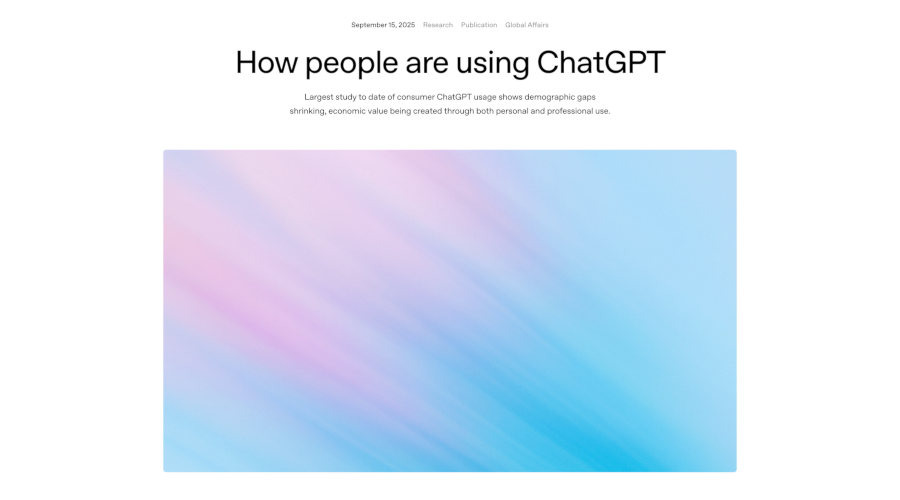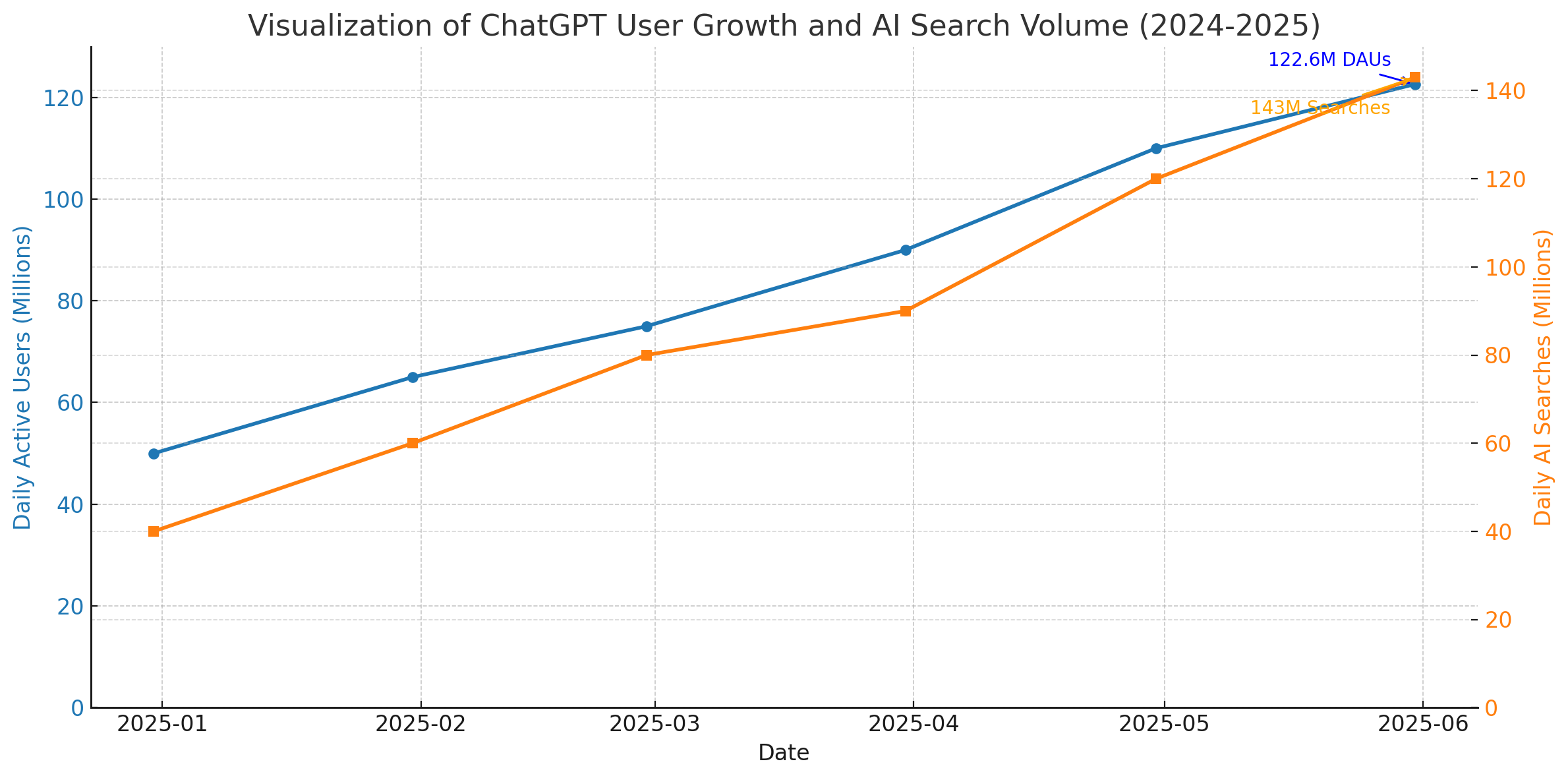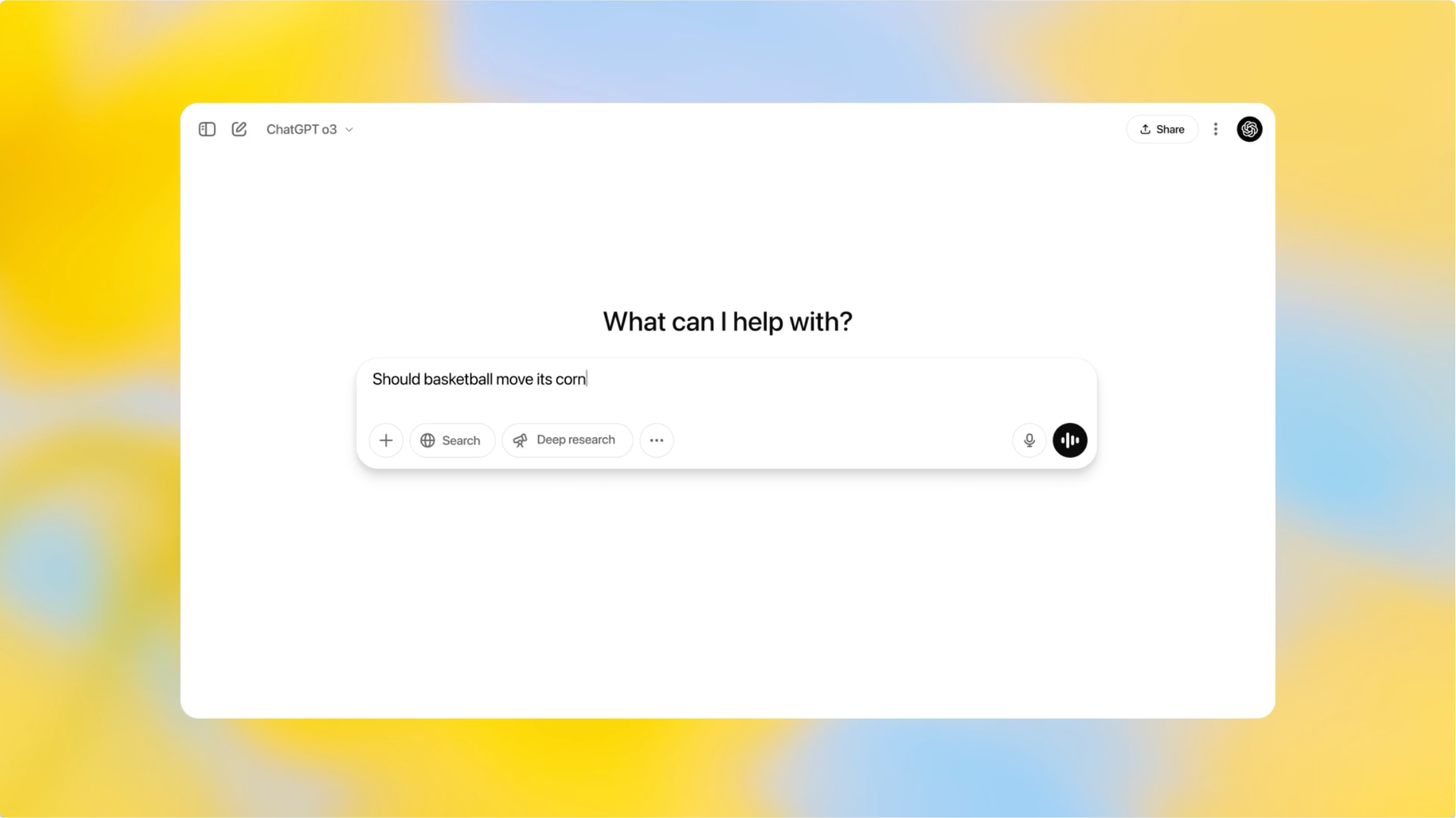ChatGPT Usage Study: 700M Weekly Users, 73% Personal Use
OpenAI's groundbreaking study reveals ChatGPT serves 700M weekly users globally, with 73% personal use and explosive growth in developing nations.

TL;DR – OpenAI just dropped their most comprehensive ChatGPT usage study yet, revealing 700 million weekly users and a massive shift toward personal use (73% vs 50% last year). For anyone doing AI SEO / GEO (Generative AI Optimization), this data changes everything about how we should approach content strategy.
The Numbers That'll Make You Rethink Your AI Strategy
When OpenAI's research team analyzed over one million ChatGPT conversations, they uncovered patterns that should fundamentally change how we think about AI discoverability. Here's what caught my attention immediately:
- 700 million weekly users – that's nearly 10% of the global population
- 73% personal use in June 2025, up from just 50% in June 2024
- Faster growth in developing countries than wealthy nations
- 28.3% of all interactions are people asking for practical how-to guidance
But here's the thing that really matters for businesses: information search became the second most popular use case by June 2025. That means more people are turning to ChatGPT instead of Google for answers.
Key Insight: If your content isn't optimized for AI discovery, you're missing out on the fastest-growing search behavior since the dawn of the internet.
The Personal Use Revolution (And What It Means for Your Content)
The shift from 50-50 work-personal split to 73% personal use isn't just a statistic—it's a fundamental change in how people interact with AI. OpenAI's study identified seven main categories, but let me break down what actually matters for content creators:
1. Practical How-To Guidance (28.3% of All Chats)
People aren't just asking "what is X"—they're asking "how do I actually do X." This includes:
- Step-by-step tutorials
- Homework and learning support
- Workout routines and health advice
- DIY project guidance
2. Writing Assistance (Growing Fast)
Users increasingly rely on ChatGPT for:
- Email drafting and editing
- Social media content creation
- Document review and improvement
- Creative writing support
3. Information Search (Now #2 Most Popular)
This is where it gets interesting for AI SEO / GEO. People are using ChatGPT like a search engine, but with conversational queries that are completely different from traditional keyword searches.
Why This Matters for Your Business
Traditional SEO optimizes for "best CRM software 2025." AI SEO / GEO needs to answer "what CRM should I use for my 10-person marketing agency that integrates with HubSpot?"
The Developing World is Leading AI Adoption
Here's something that surprised even me: ChatGPT usage is growing faster in developing countries than in wealthy nations. While OpenAI didn't release country-specific numbers, this trend has massive implications.
Why? Because it means AI assistants aren't just a "nice-to-have" for tech-savvy early adopters—they're becoming essential tools for people who need practical, accessible information.
If you're only optimizing your content for users in the US and Europe, you're missing a huge opportunity. The next wave of AI users will have different needs, different questions, and different ways of searching for solutions.
What This Study Reveals About AI Search Behavior
After diving deep into this research, three patterns emerge that completely change the AI SEO / GEO game:
Pattern 1: Conversational Context Matters More Than Keywords
Traditional search: "WordPress SEO plugin" AI search: "I have a WordPress blog about cooking and I'm getting almost no traffic from Google. What's the best SEO plugin that won't slow down my site?"
Pattern 2: People Want Personalized, Actionable Advice
Instead of generic "10 Best X" lists, users want solutions tailored to their specific situation, industry, and constraints.
Pattern 3: The Question Behind the Question
When someone asks ChatGPT "how to increase website traffic," they're often really asking "how do I grow my business online without spending money on ads."
Smart content creators are already adapting by writing for the real intent behind AI queries, not just the surface-level keywords.
Programming Use Dropped to Just 4.2% (But Don't Ignore It)
While coding assistance represents only 4.2% of total ChatGPT usage, this is still millions of weekly interactions. For B2B companies selling developer tools or technical services, this represents a massive opportunity.
The key insight? Developers using ChatGPT aren't just asking for code—they're asking for explanations, troubleshooting help, and architectural advice. Your technical content needs to address these deeper needs.
The AI Discoverability Challenge (And How to Win)
Here's what most businesses still don't understand: getting discovered by AI users requires completely different optimization strategies than traditional SEO.
When someone asks ChatGPT "what's the best project management tool for remote teams," the AI doesn't just look at your title tags and meta descriptions. It analyzes:
- How well your content answers specific, contextual questions
- Whether you provide actionable, practical guidance
- How current and authoritative your information appears
- Whether your content addresses real user pain points
The problem? Most companies are still optimizing for Google's algorithms while ignoring the 700 million people now using ChatGPT weekly.
ShowUpInAI automatically submits your new and updated pages to Bing via IndexNow for faster indexing. Since Bing powers ChatGPT, Copilot, and Perplexity, faster Bing indexing means faster AI discoverability.
What to Do Right Now (Before Your Competitors Figure This Out)
Based on OpenAI's findings, here's your action plan:
1. Audit Your Content for AI-Friendly Patterns
- Does your content answer specific, contextual questions?
- Are you providing step-by-step, actionable guidance?
- Do you address the personal use cases that now dominate AI interactions?
2. Optimize for Conversational Queries
Start creating content that answers questions like:
- "How do I [achieve specific outcome] when [specific constraint]?"
- "What's the best [solution] for someone who [specific situation]?"
- "I'm struggling with [specific problem], what should I try first?"
3. Focus on Practical, How-To Content
Remember: 28.3% of ChatGPT interactions are people seeking practical guidance. Your content should provide immediately actionable advice.
4. Think Global, Act Local
With faster growth in developing countries, consider how your content serves users with different needs, budgets, and technical constraints.
Content Audit
Review existing content for AI-friendly patterns and conversational query optimization
Question Research
Identify the specific, contextual questions your audience asks AI assistants
Answer Architecture
Restructure content to provide direct, actionable answers to real user problems
Fast Bing Indexing
Set up automated IndexNow submissions so your new content gets into Bing (and AI assistants) quickly
The Bottom Line: AI Discovery is the New SEO
OpenAI's study confirms what we've been seeing at ShowUpInAI: AI assistants are fundamentally changing how people find information. With 700 million weekly ChatGPT users and 73% personal use, the writing is on the wall.
Companies that adapt their content strategy now—focusing on conversational queries, practical guidance, and AI discoverability—will capture this massive shift in user behavior. Those that don't will watch their competitors get cited by AI assistants while they remain invisible.
The question isn't whether AI will impact your traffic. It's whether you'll be ready when it does.
Try ShowUpInAI free and see how fast you can start getting real ChatGPT user traffic to your site through automated IndexNow submissions to Bing.
Start Your Free Trial

